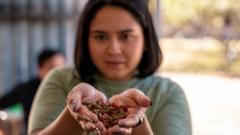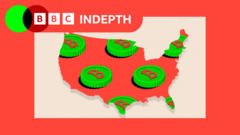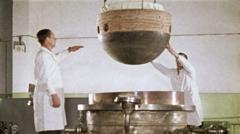In a nation where deep-fried delicacies dominate the culinary landscape, one innovative initiative is turning waste into valuable products. Hugo Daniel Chávez, a project manager for the environmental non-profit Sustenta Honduras, has found a way to produce soap and dog food from recycled cooking oil. “With the volume of waste generated from culinary practices, we aim to transform it and give it a second life,” Chávez explains.
Every year, millions of tonnes of cooking oil are consumed across Latin America, primarily for frying popular items like chicken and plantain strips. However, frequent reuse and improper disposal of this oil pose significant health risks and environmental challenges. When discarded irresponsibly, used cooking oil can clog pipes, contaminate groundwater, and harm freshwater ecosystems.
In response to these challenges, the proactive team at Sustenta has introduced a program to incentivize local businesses to dispose of their used oil correctly. By purchasing and routinely collecting used cooking oil from participating establishments, they have created a sustainable recycling loop. Executive director Ricardo Pineda highlights the project's roots: "Earlier attempts focused on creating biodiesel, but that market doesn't exist here, so we opted for products likelier to succeed in our local economy."
Sustenta's work caught international attention, recently winning a $20,000 grant as part of the 2023 Youth4Climate Energy Challenge, endorsed by the Italian government and the United Nations Development Programme. The Dutch embassy in Honduras also supports the initiative, recognizing its eco-entrepreneurial approach that creates jobs while fostering environmental responsibility.
The organization pays local businesses between 2.50 to 3.50 Lempiras (£0.08 - £0.11) per pound for their used oil. They've also secured significant contracts with the Central American division of Walmart, ensuring a steady supply of used oil from affiliated companies, essential for scaling up production and combating the black market.
Once collected, the oil undergoes a purification process at a facility in Comayagua before it enters the saponification stage, where it transforms into soap. Not only does Sustenta manufacture soap and dog food from recycled materials, but they also pursue cooperation with local businesses, utilizing waste streams from other facilities to enhance their processes.
Monthly revenues from soap sales already exceed 106,000 Lempiras (£3,194.70), demonstrating the economic viability of environmental innovation. However, Pineda insists that profits are reinvested for sustainability rather than remaining within the organization.
Comprised predominantly of young individuals averaging 23 years old, Sustenta reflects a shift towards innovative solutions rather than traditional environmental activism. Pineda emphasizes their mission: "We are not here to merely discuss climate change; we want to drive tangible solutions."
As the project coordinator, Paola Acevedo asserts, “This approach to environmentalism complements traditional activism—it’s not an either/or.” By focusing on practical solutions, Sustenta embodies a forward-thinking model where environmental stewardship and community empowerment go hand in hand. The recycling of cooking oil is just one of several initiatives championed by this dynamic organization, affirming their commitment to creating a sustainable future for Honduras.






















